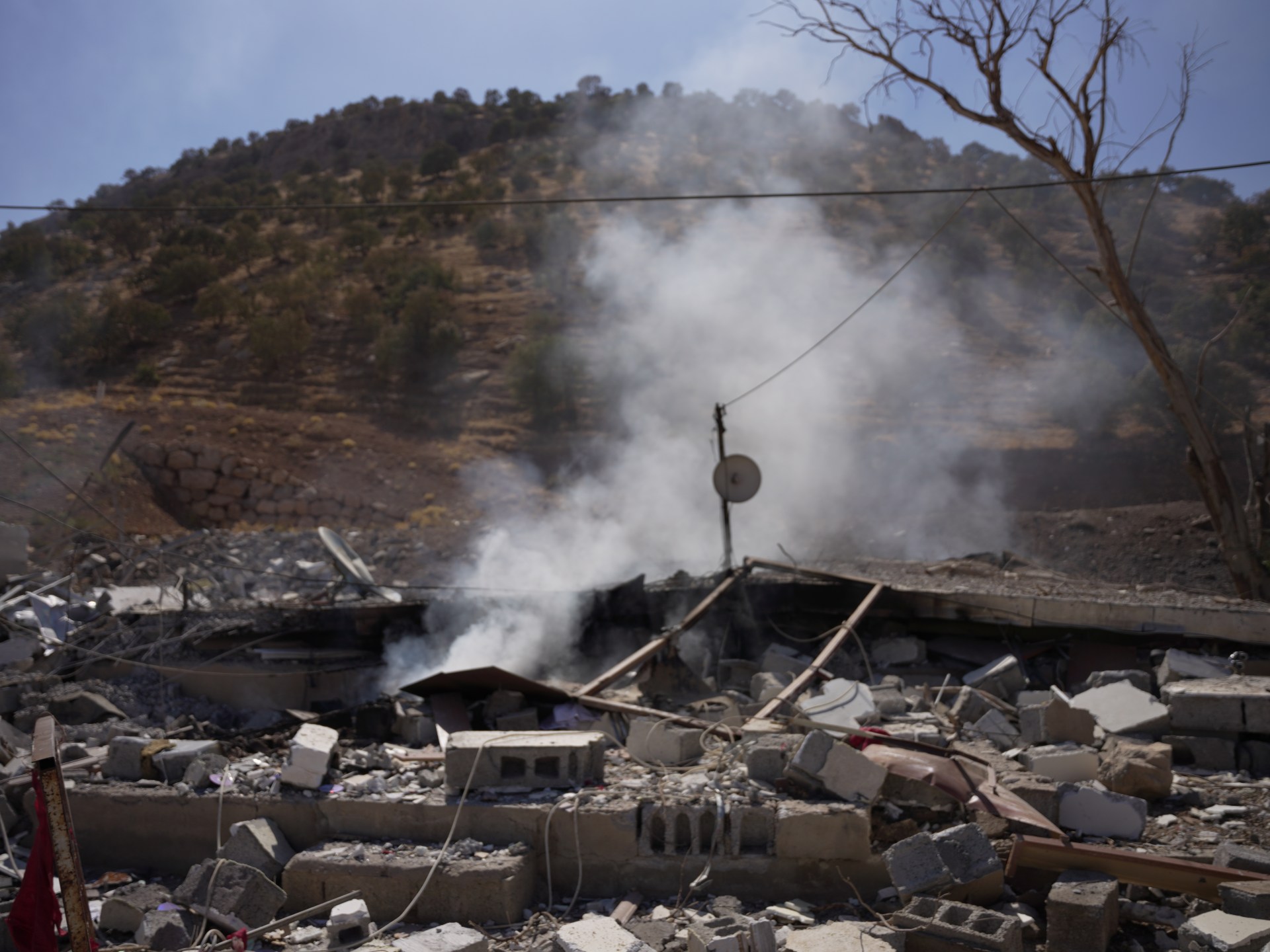Special -
The Iranian Revolutionary Guard announced its latest missile strikes, which began on September 24, against the headquarters of groups in the Kurdistan region of Iraq, which it described as "terrorist".
A statement by the Revolutionary Guards explained that these strikes are due to the military support by Kurdish groups to the Kurdish protesters in Iran, in order to "destabilize security and stability" on the eastern bank of the Iranian-Iraqi border.
Media close to the Revolutionary Guards said that the targeted headquarters belong to the "Komla", "Kurdish Democratic" and "Pak" parties in Iraqi Kurdistan.
Iranian state television reported that 72 Revolutionary Guards missiles had a range of up to 130 km from the territory of northern Iraq.
On the other hand, the Iraqi Foreign Ministry spokesman announced his country's intention to "urgently summon the Iranian ambassador to protest against the bombing."
A member of the Kurdistan Democratic Party was transferred after being injured in attacks by the Revolutionary Guards on the village of Altun Kobri, south of Erbil (French)
strained relationships
After Iran was the first destination for prominent Kurdish personalities, especially from the Barzani family, after it was expelled from Iraq during the Kurdish leaders’ disputes with the Iraqi regime, the Kurdistan region of Iraq has become in recent years a target for the Revolutionary Guards’ missiles.
The Iranian analyst specializing in Kurdish affairs, Ali Mousavi Khalkhali, attributed this targeting to 3 main issues, as he believes that "Iran's violation of the independence referendum in Iraqi Kurdistan was the beginning of the decline of relations between the two sides."
On the other hand, the analyst pointed out - in his speech to Al-Jazeera Net - to the role of the Kurdistan region in the crisis of government formation in Iraq, which "Tehran considers to violate the attempts of the coordination framework to form a government close to Iran," according to him.
He also saw that "the Kurdish ideology of supporting the Kurds, as they have always fueled relations between Iran and the Kurdistan Region, because it is reflected in the border security between the two countries."
Khalkhali explained that "the Kurdistan region has never given up its support for Kurdish groups, even if this support negatively affects the region's relations with another country, such as Iran, Turkey and Syria."
In a related context, the analyst reminded that "the Iranian Revolutionary Guard, in turn, has never tolerated the Kurdish groups in northern Iraq, and that it chose to target them militarily from the beginning," while activists considered these attacks "an attempt to distract public opinion from the protests in Iran."
Relations with Iraq
And whether Iran’s relations with Iraq in general - and the Kurdistan region of Iraq in particular - will be affected by these missile strikes, especially after their condemnation by the Baghdad and Erbil governments, Khalkhali saw that “Tehran’s relations with Baghdad will be affected by these strikes in the event that events develop inside Iraq regarding the formation of the government In a way that contradicts Iranian interests, in this case, the Revolutionary Guards’ targeting of sites in the Kurdistan region will be added to the situation, and then we will witness a setback in Iranian-Iraqi relations.”
Regarding Tehran's relations with the region, Khalkhali considered that "these events will undoubtedly affect the relations of the two parties," given the material and human losses caused by the Revolutionary Guards' missiles, according to the Iraqi authorities.
In this regard, he explained that "relations between Iran and the Kurdistan region of Iraq are declining very quickly," referring to Iran's accusations of the region's inclusion of hostile Israeli activities, as Tehran recently targeted a headquarters near Erbil, which it said belongs to Israel.
On the other hand, Khalkhali said, "Kurdistan is trying to improve its relations with Turkey and has been approaching it recently, so this may affect Tehran and Ankara relations as well."
Al-Jazeera Net contacted the representative of the Iraqi Kurdistan region in Iran, Nazem Dabbagh, and asked him questions about the future of Iranian-Kurdish relations, and his opinion on what Tehran says about the region's support for Iranian Kurdish armed groups, but he declined to answer, content with a written response that he had no answers regarding These questions are for the time being.
Plumes of smoke rise as an ambulance transports wounded people from attacks by the Revolutionary Guards in the Zargouz area, near Sulaymaniyah, Iraq (French)
Iranian interior
By following the reactions in Iran, it becomes clear that in light of the Revolutionary Guards targeting sites in the Kurdistan region of Iraq, the so-called “reformist current” chose silence, while those belonging to the so-called “fundamentalist current” praised what they described as “maintaining borders and security.” National".
In this regard, Iranian analyst Ali Reza Taqvi wrote that "the Revolutionary Guard has proven through its recent operations that its capabilities to defend national security will not be affected by internal events," which he described as "riots."

